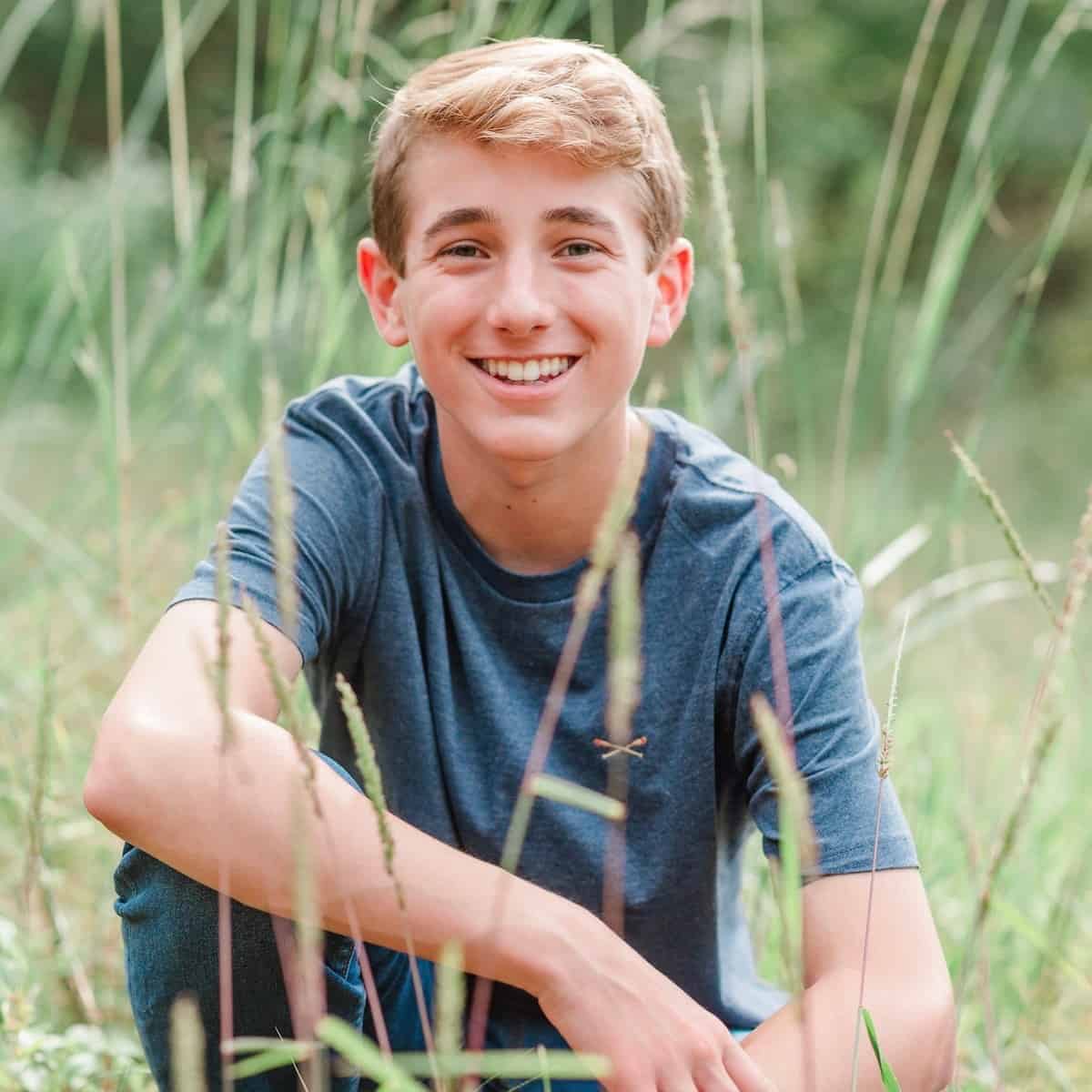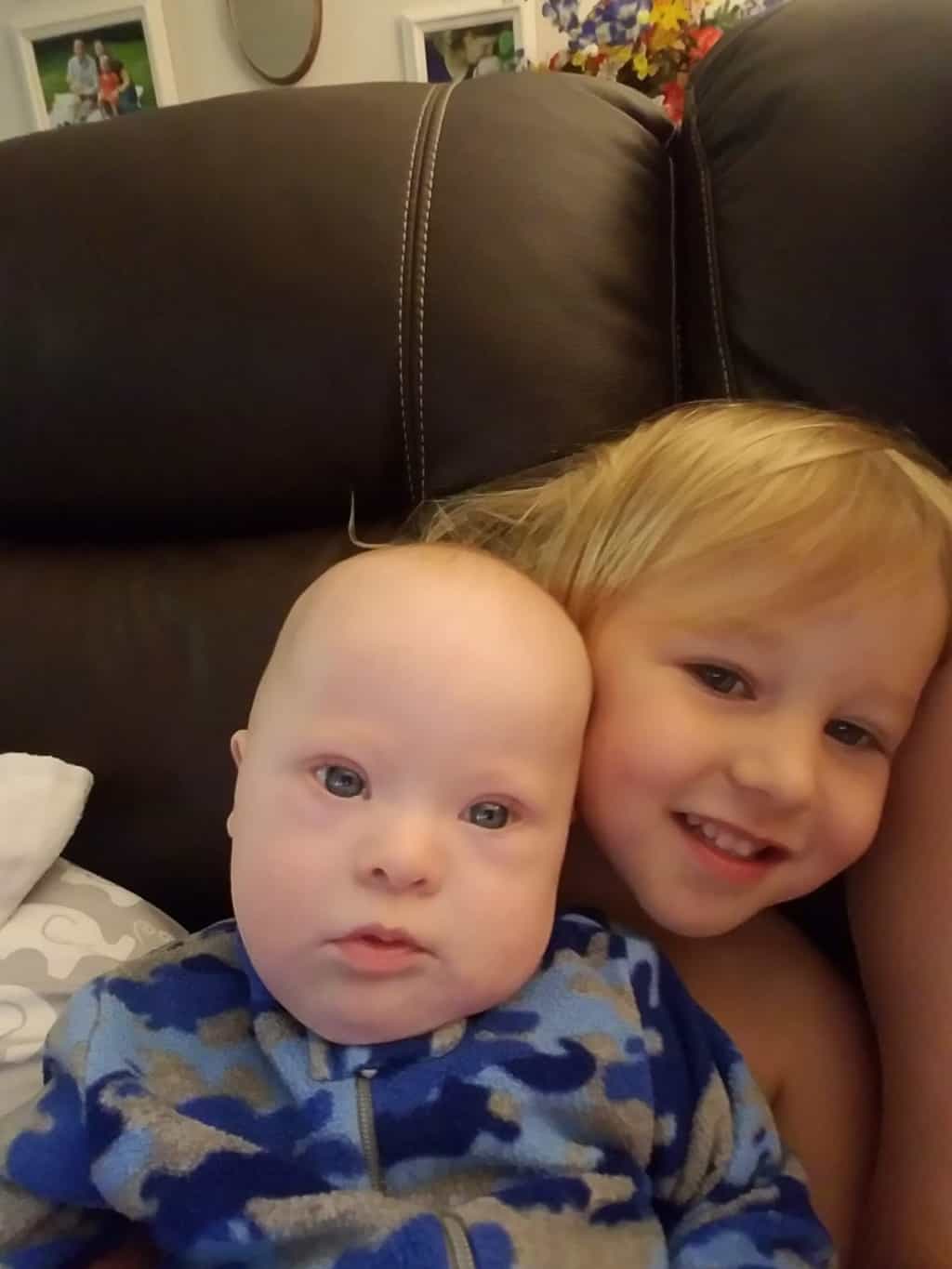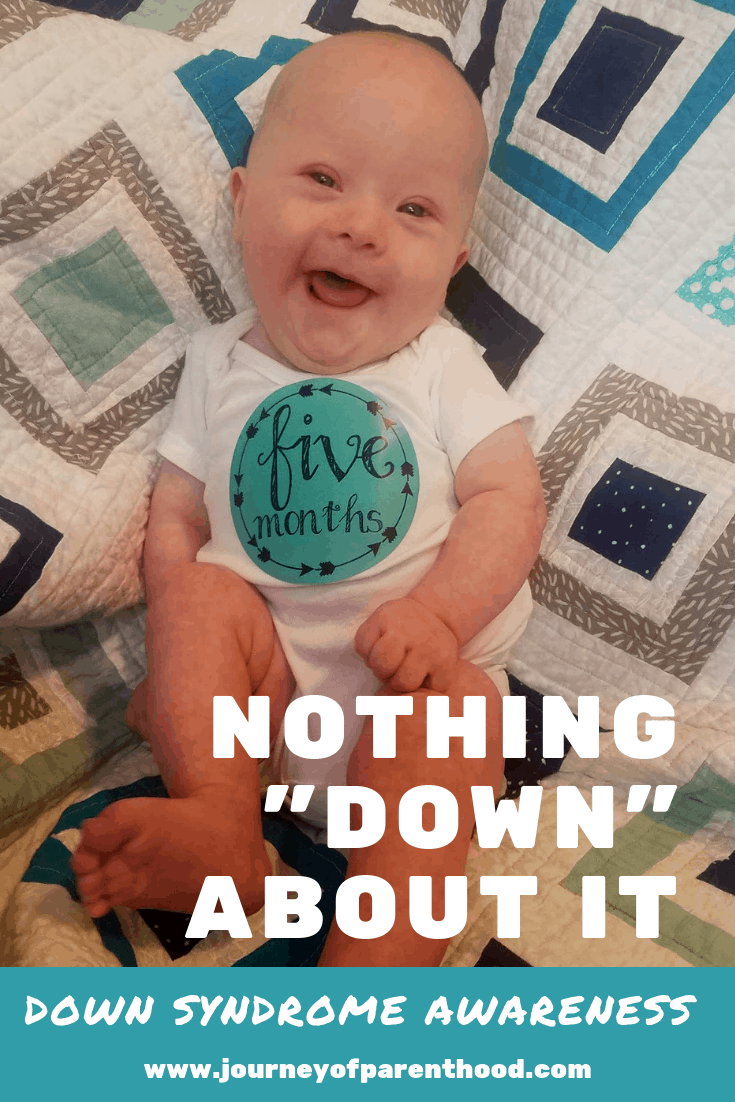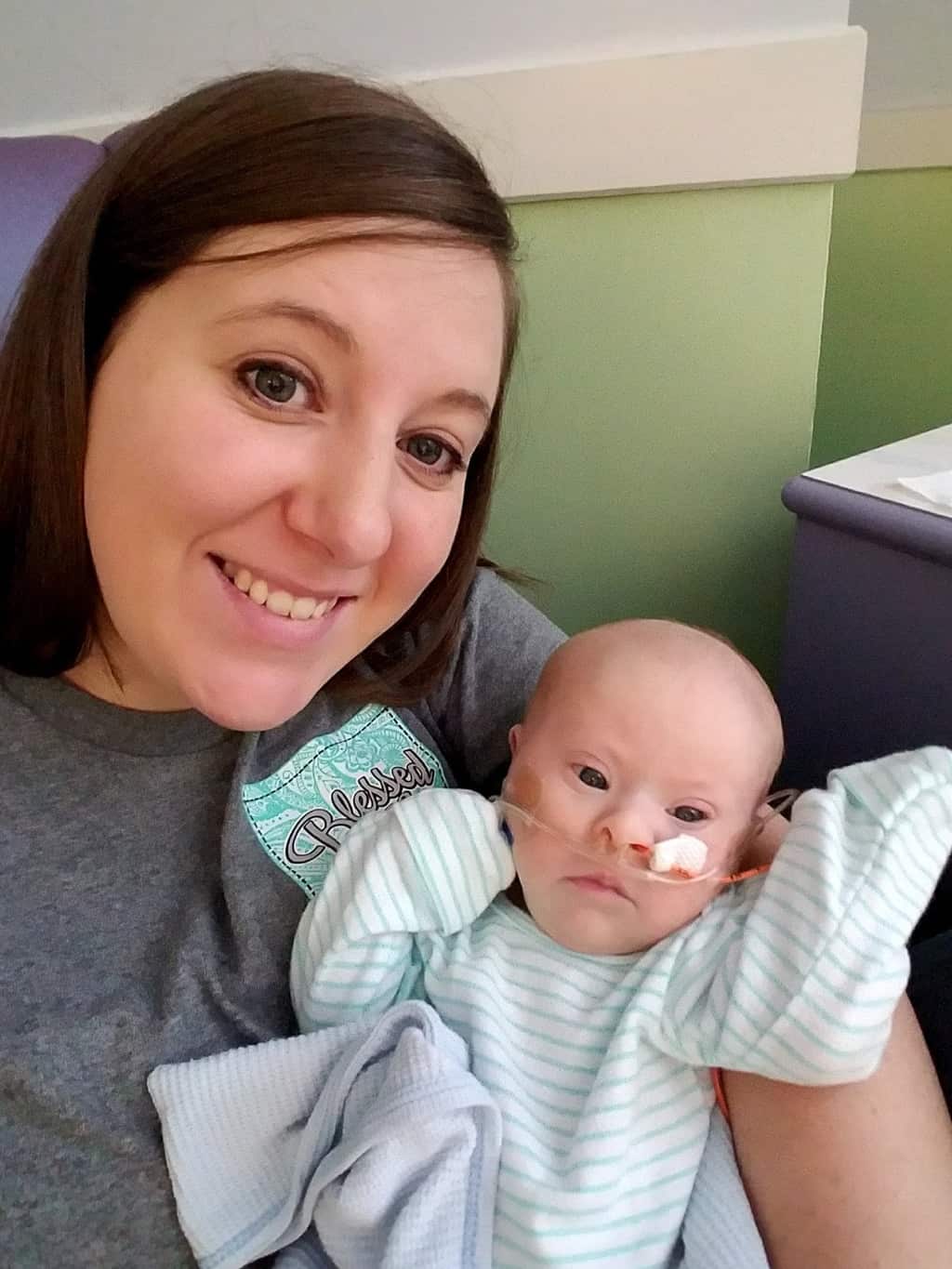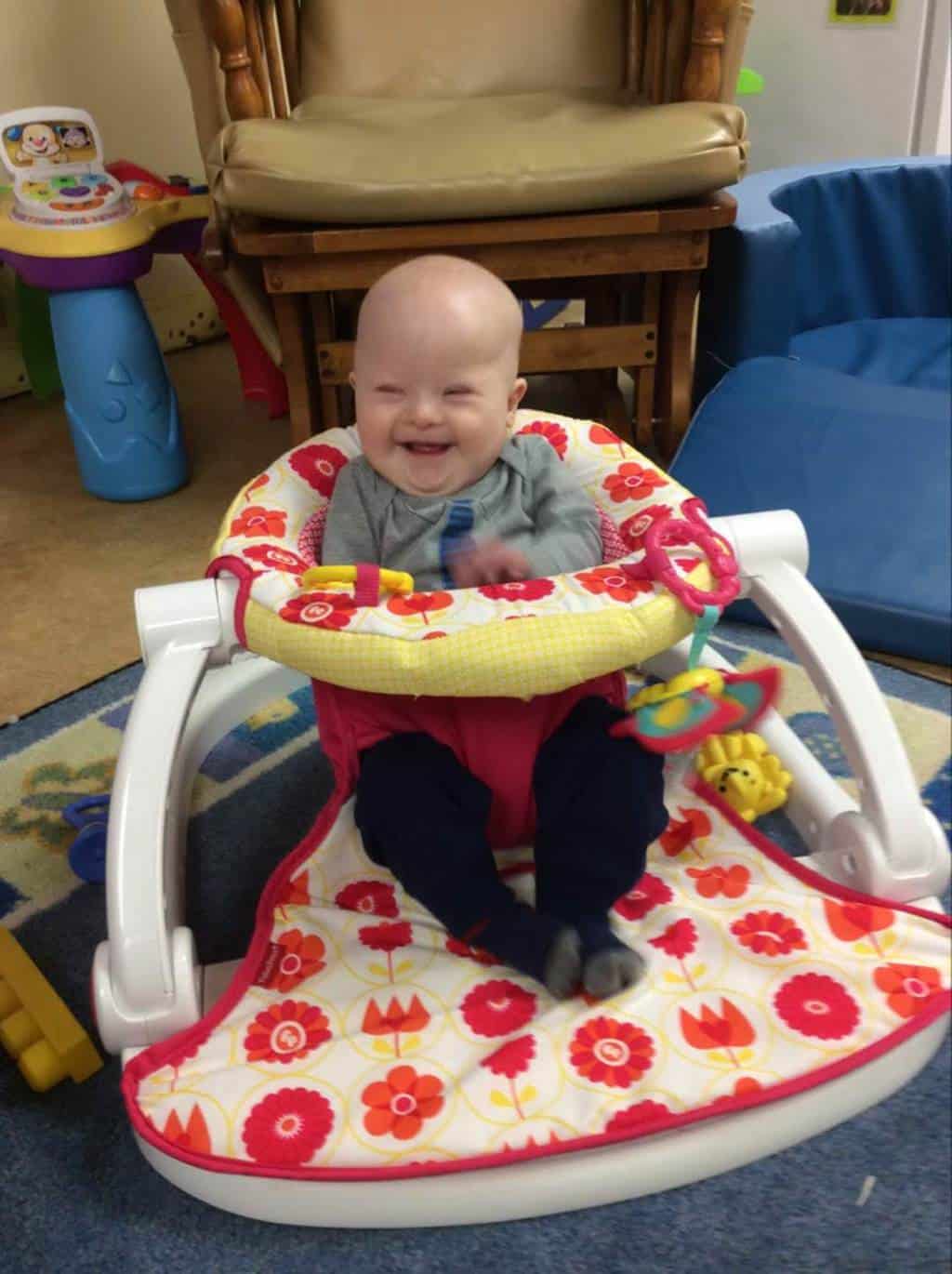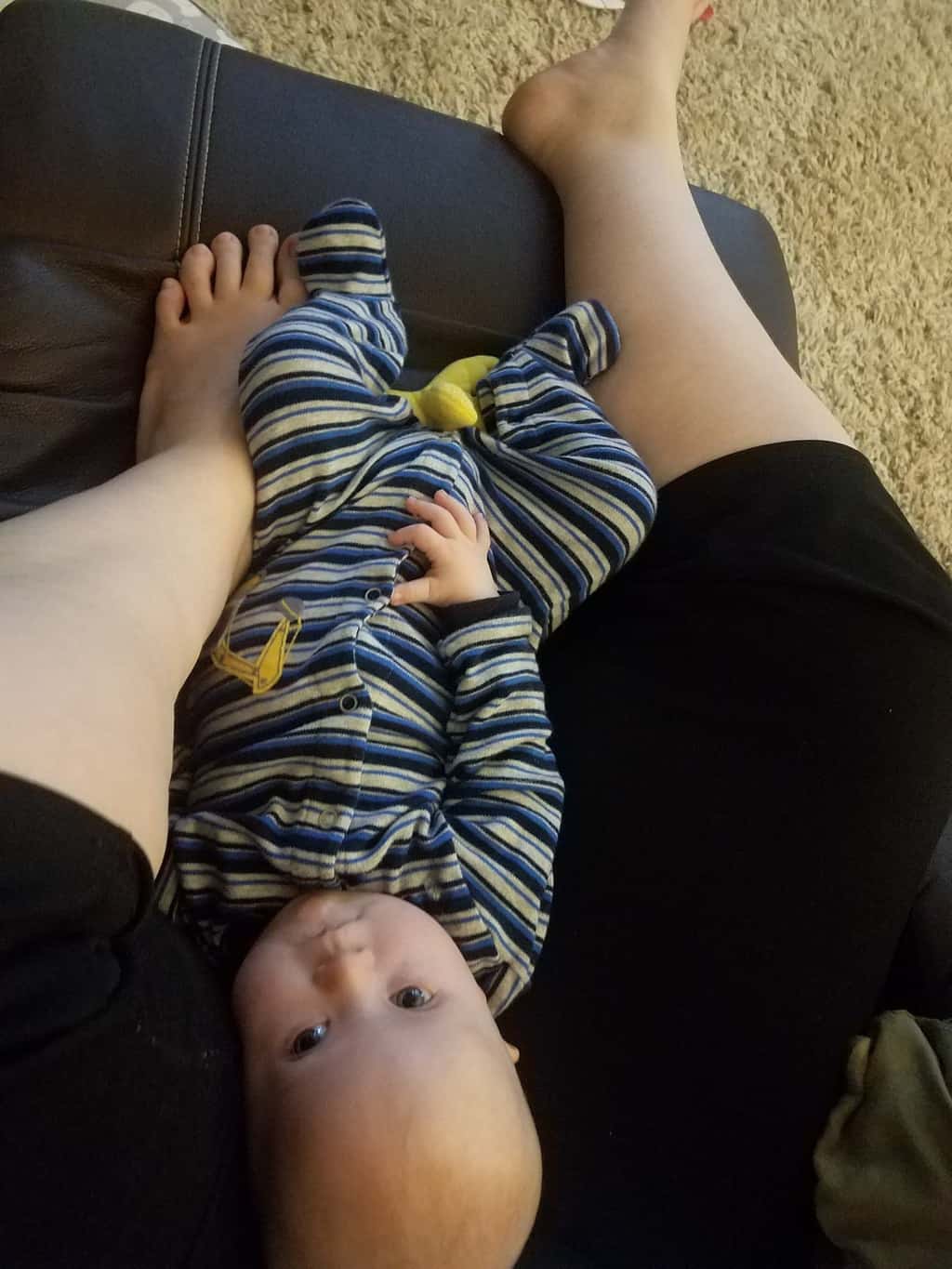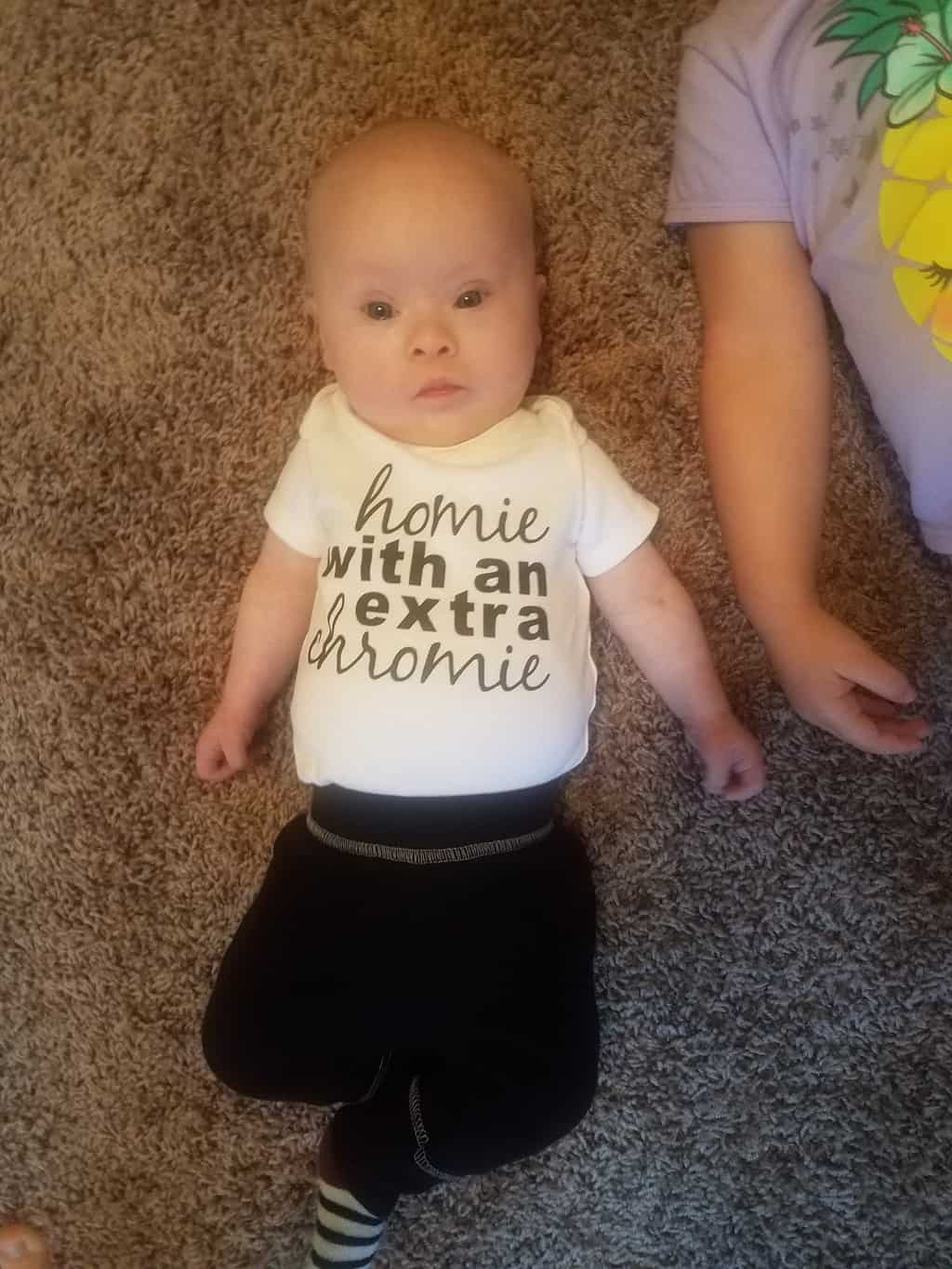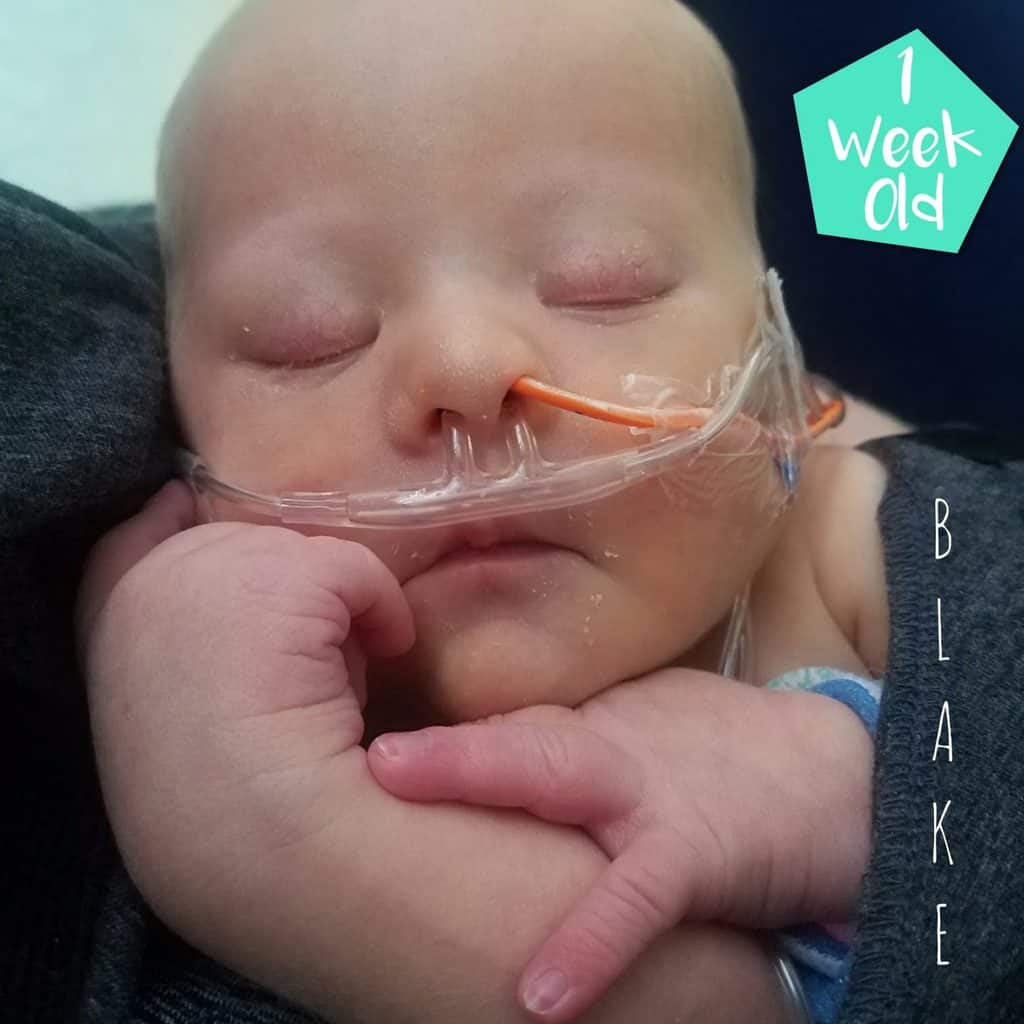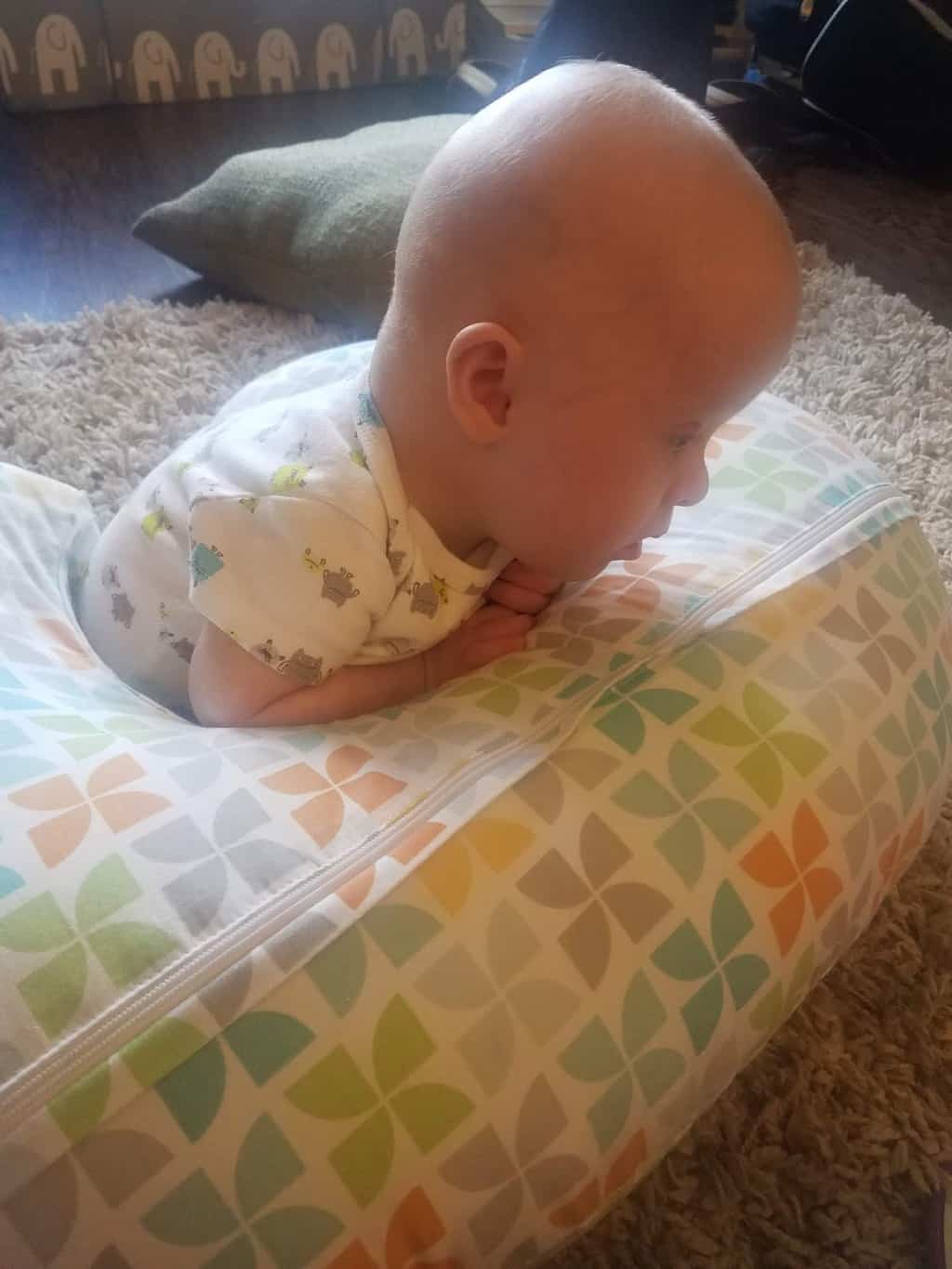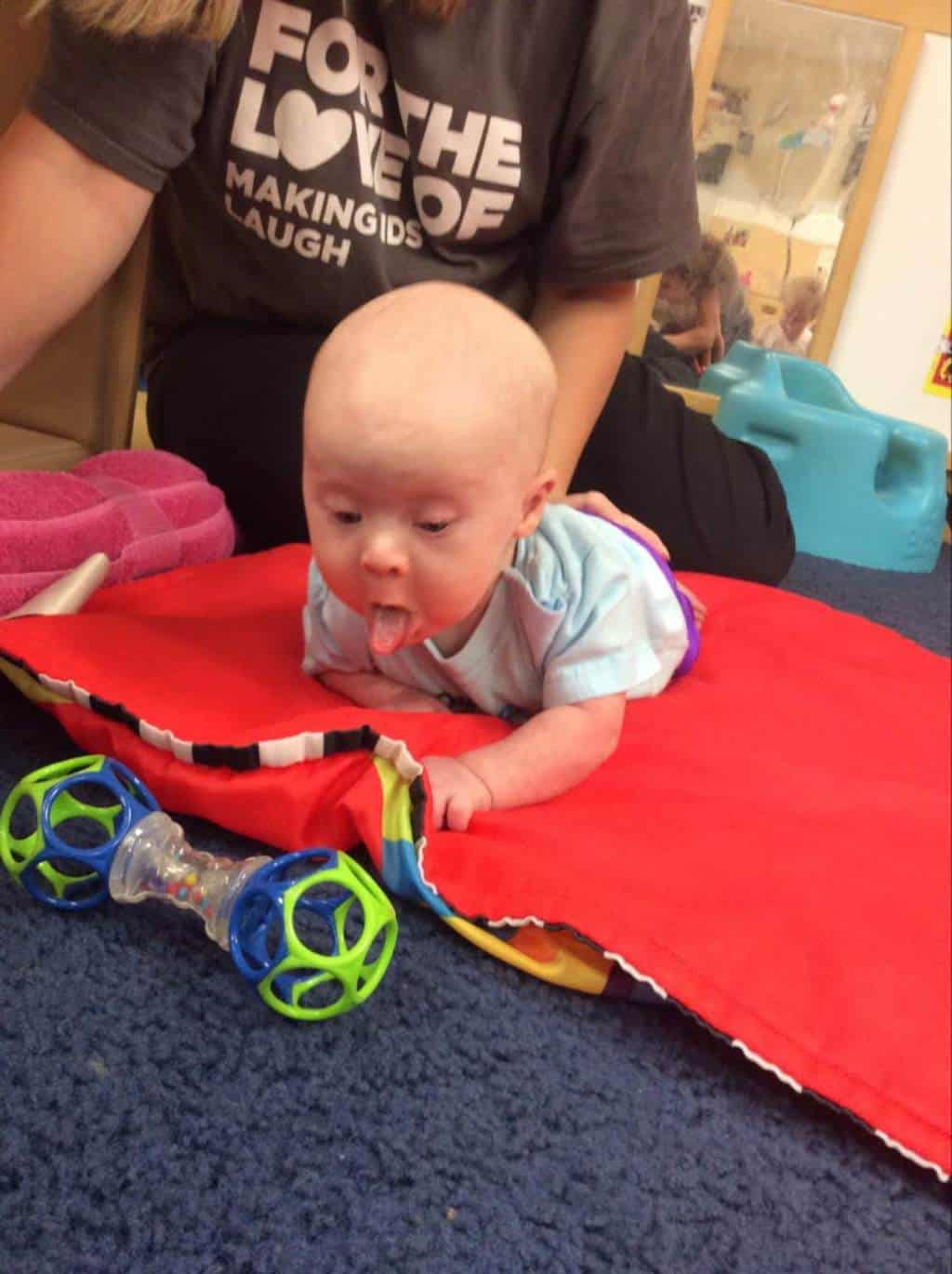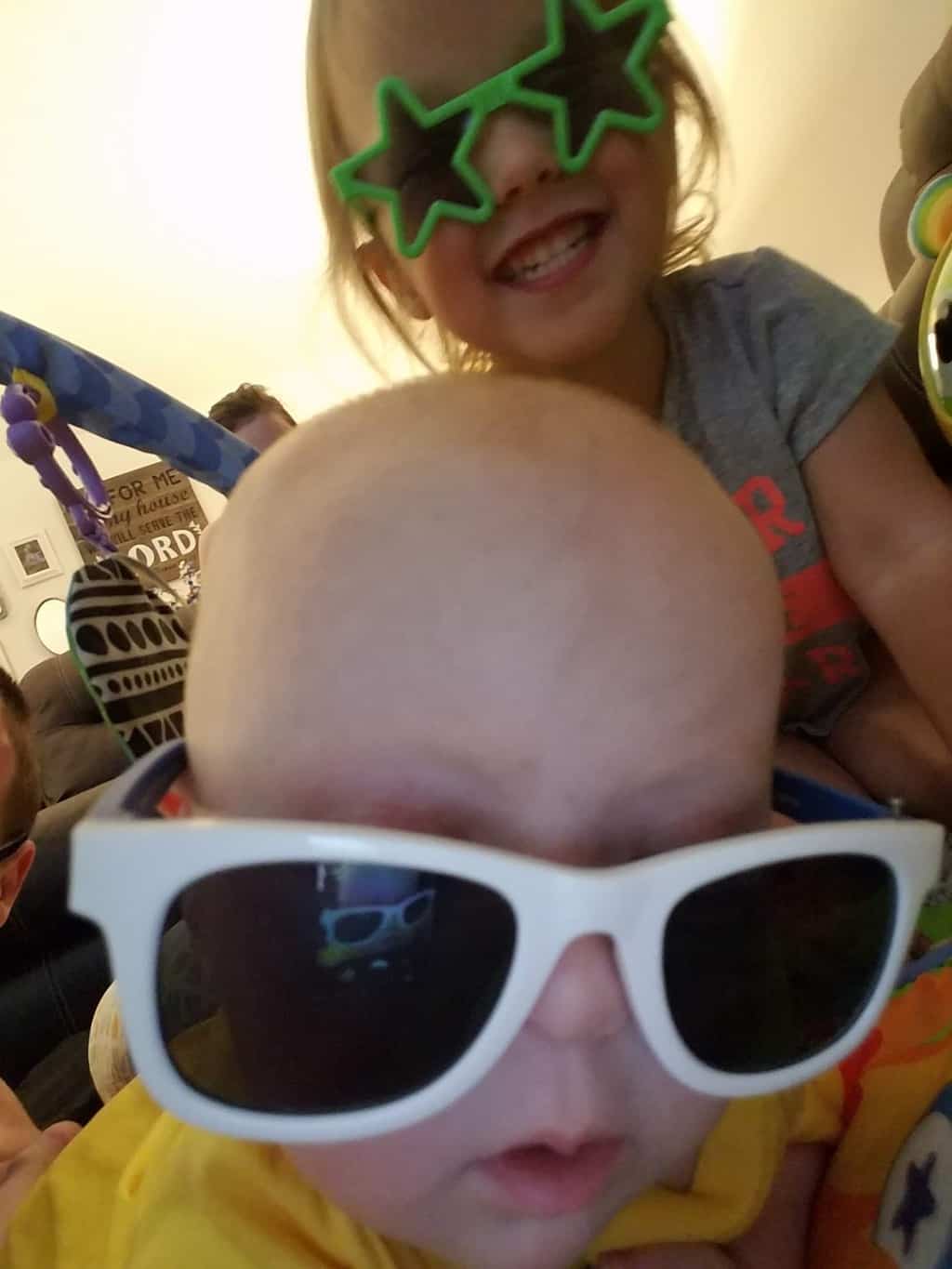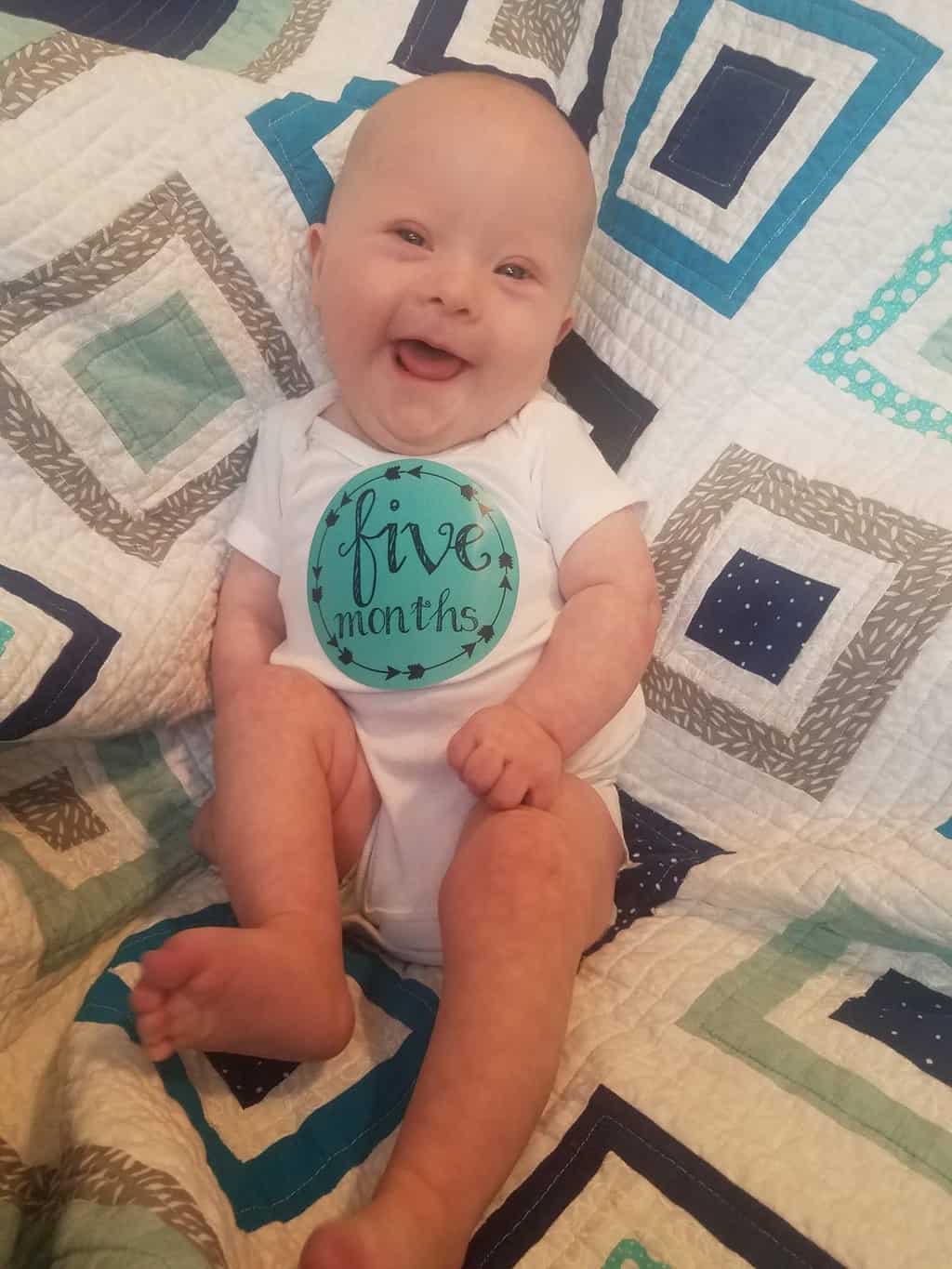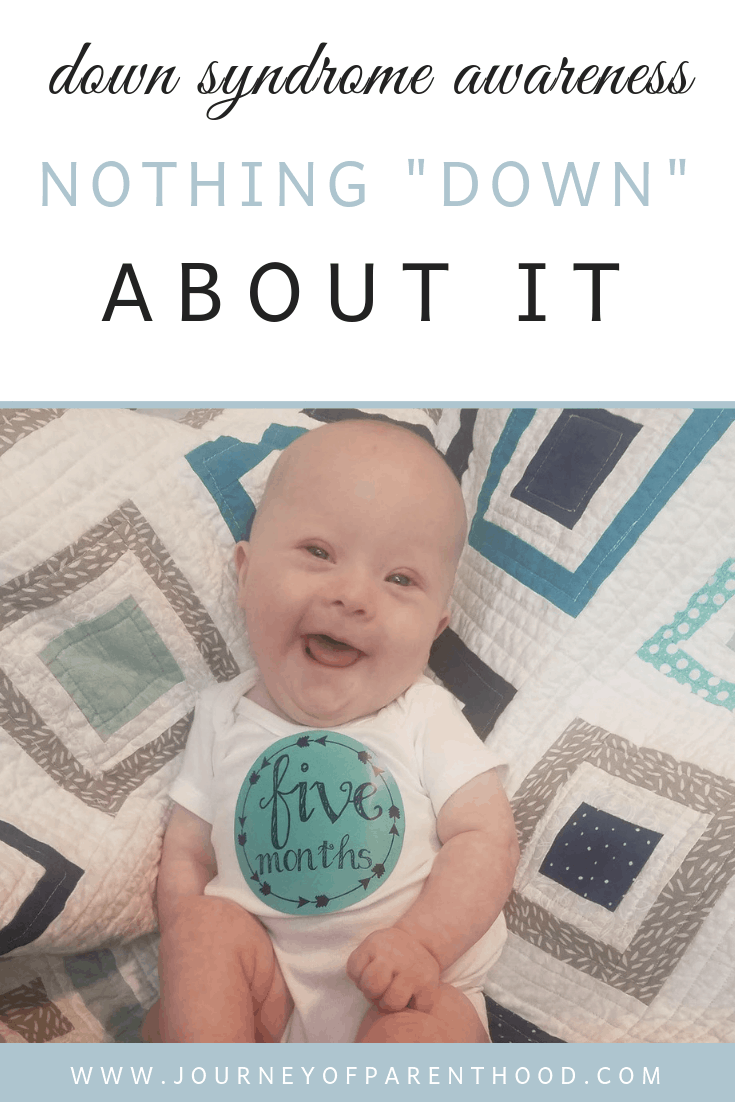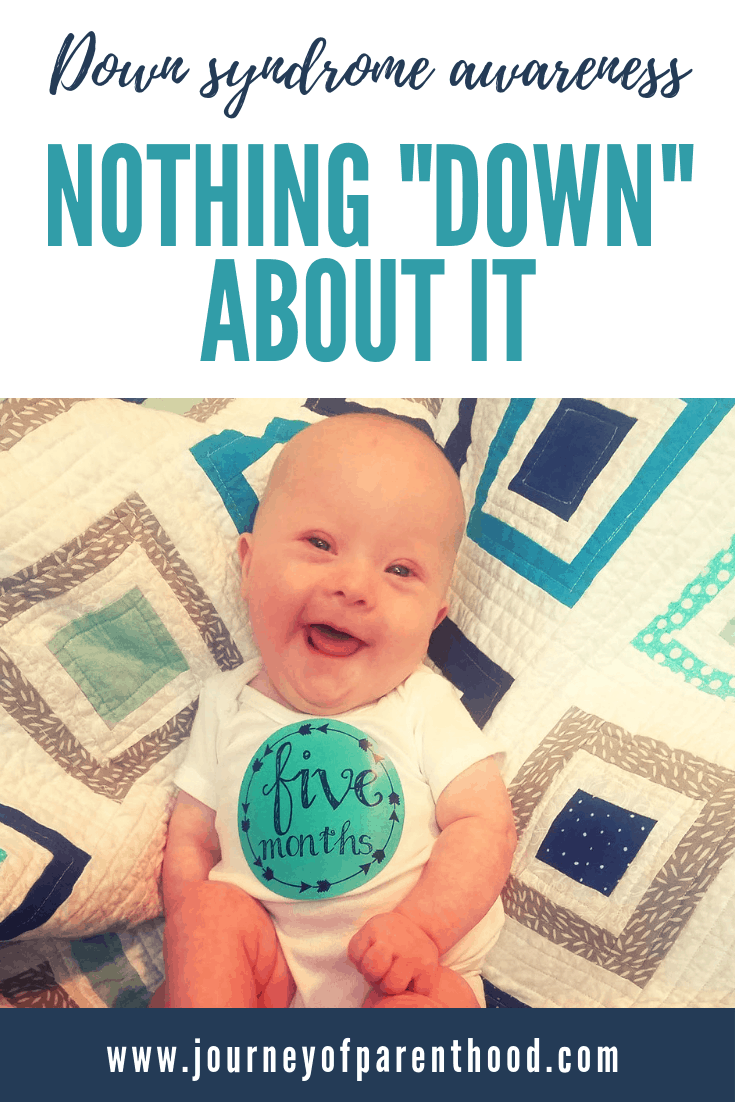Nothing DOWN About It {Down Syndrome Awareness}
Hi! My name is Kirstin and I blog over at The Gaddis Gazette, where I write about our life with a little EXTRA. October is Down syndrome awareness month and I am so thrilled that Emily has asked me to guest post about Down syndrome to help spread that awareness.
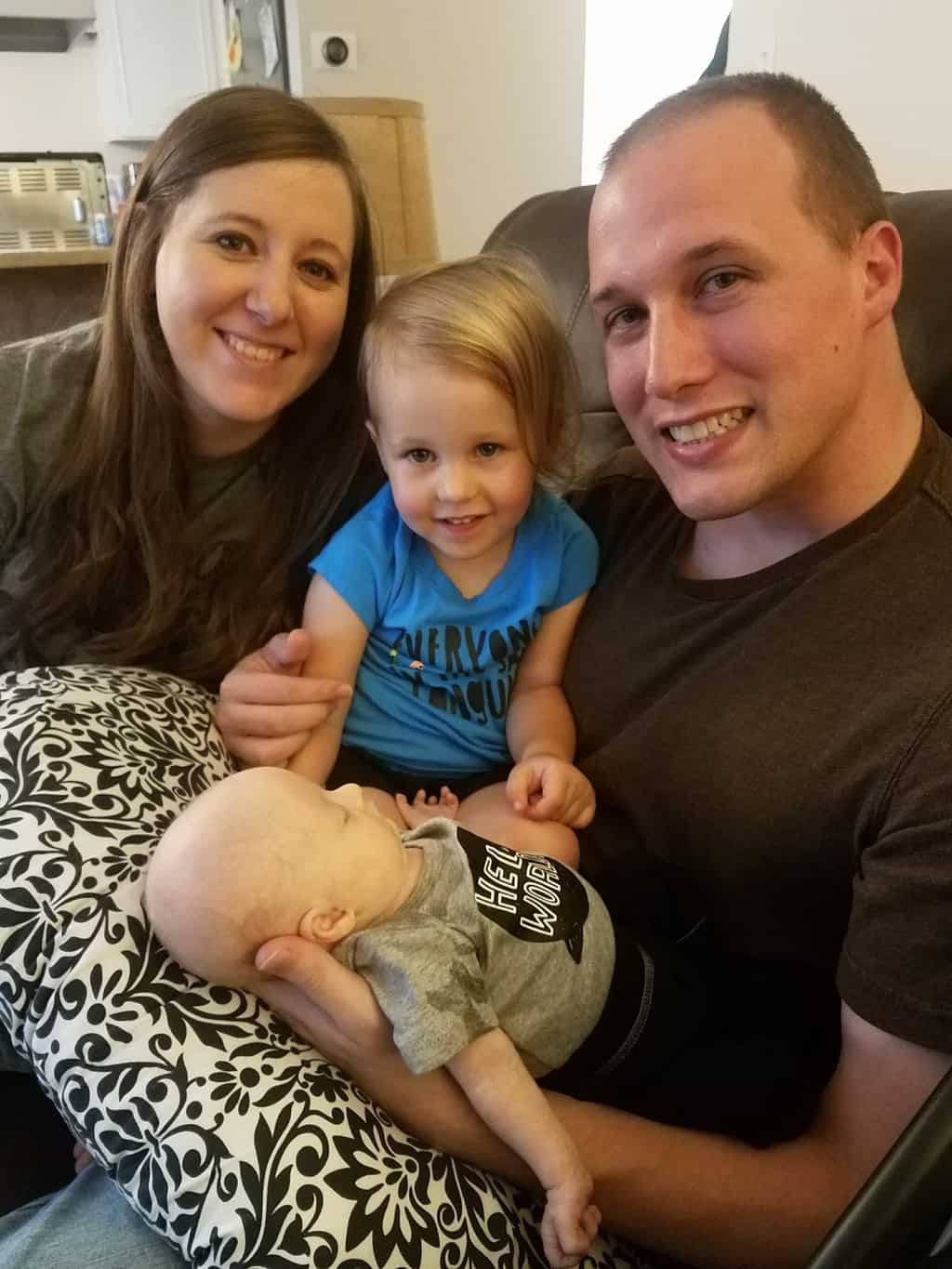
If you had asked me what I knew about Down syndrome a year ago, I would have said “People with Down syndrome look different and have a disability.” That is the extent of what I knew about it. Fast forward a few months later at our nineteen week anatomy scan and the words “heart-defect and calcification” and “excess kidney fluid” are being thrown around along with the words “soft markers for Down syndrome.”
Read about our feelings when first learning this news here.
The next month waiting for our blood screening results and our next appointment with the specialist was filled with a ton of Google research trying to learn everything I could about raising a child with Down syndrome. It was also filled with a lot of tears as I grieved for the child I knew I wouldn’t have. However, the resources and community I found were so encouraging and the grief quickly turned into being excited for our new blessing.
Read about how we shifted focus to prepare for our new baby with this diagnosis here.
Since having my son, Blake, I have felt led to start raising awareness about Down syndrome, so I have turned our family blog and my social media accounts in that direction. I will have a lot of other, more specific posts, related to Down syndrome on my blog, especially for new parents, but I really want to focus on just some specific things that people typically don’t know about Down syndrome that I believe will help change the stigma associated with it.
- First, Down syndrome is a genetic disorder caused when abnormal cell division results in extra genetic material from chromosome 21. Which means people with Down syndrome have an extra chromosome. There are three types: non-disjunctive (most common, and what Blake has, 95%), translocation (hereditary and only about 4%), mosaic (which is very rare and only about 1%). About 800 people are born each year with Down syndrome, to mostly women under the age of 35.
2. People with Down syndrome can do anything a typical person can do. They can own a business, go to college, have a job, be celebrities, get married, etc. There is a great show on A&E called “Born This Way”, that is about several adult individuals with Down syndrome that proves just how true this is. One of the individuals is a public speaker and has a great speech about how people with Down syndrome should not be limited because of their disability. You can watch it here, and I highly suggest that you do! People with Down syndrome lead very happy lives.
3. People with Down syndrome can’t have mild or severe cases of Down syndrome. You either have it or you don’t. Every person with Down syndrome will have some type of cognitive delay but it differs with each person, just like all people’s abilities differ. People with Down syndrome have strengths and weakness, just like everyone else.
4. Use person first language. They are people with Down syndrome, not Down syndrome people. Also do not use words like Downs, people do not have Downs, they have Down syndrome. This has been hard even for me, I am constantly stopping myself as Down syndrome can be a mouthful if you say it a lot. In the Down syndrome community online we often shorten it to Ds.
5. Do not use the word “retarded”. Yes, you probably mean it has “don’t be stupid,” but when saying it that way you are basically saying “don’t be slow like a person who has a cognitive disability.” I teach 7th and 8th graders and this is a common word in their vocabulary so I have this conversation on almost a daily basis with them.
6. People who have Down syndrome are also more likely to have more medical issues, mostly heart and intestinal issues, with some vision, hearing and thyroid. 40-50% of babies with down syndrome are born with a heart defect and need some type of heart surgery. When I was 20 weeks pregnant we had fetal heart echo. It showed that Blake had what was called a coarct of the aorta and a VSD. This meant that his aorta was not straight and had a curve in it which could affect blood flow when he was born and a VSD is a hole in his his heart. We had another echo at 30 weeks and while the aorta looked better they found more holes and compared his heart to swiss cheese. Because of the heart issues, Blake was taken to the NICU within twenty minutes of being born to get an echo and be observed. Our prayers during the pregnancy worked and his aorta worked perfectly, all his holes closed up in utero except for one and that one closed up before we were discharged from the NICU at 33 days old. He also has hypothyroidism which is controlled with medication.
7. All babies with Down syndrome are born with hypotonia, which is low muscle tone. The level of low tone ranges from baby to baby. This affects their gross motor skills and eating ability. While Blake’s bodily tone is on the high side of low, which means it isn’t that bad, he is a little delayed in his gross motor skills. He receives physical therapy weekly to help us with this and they give me/daycare daily exercises to work on. Blake has very low tone in his mouth and he had to learn how to suck properly and be able to take a bottle without fatiguing half way through, which is what kept us in the NICU so long. He has been seeing a speech therapist since he was three months old to help strengthen his oral tone. Everything that Blake does is like an intense workout for him so he has to build a lot of stamina.
8. Never tell someone that you are sorry that they have a child with Down syndrome. We are not sorry, we love Blake so much and he brings so much joy to our lives. Is it the life we envisioned? No, but we wouldn’t change it if we could.
9. Children with Down syndrome should be in an inclusive education environment. This means that they should be in the general education classroom with their typical peers. Studies show that both people with Down syndrome and their typical peers do better when in a classroom together. Unfortunately, in a lot of school districts this is a fight for parents, but it is a fight worth fighting.
All people with Down syndrome just want to be included and treated like everyone else. The stigma of people with Down syndrome will only change if parents of today’s generations teach their children that people with Down syndrome are no different and should be befriended and treated just like everyone else.
This is what I ask of you, expose your children to those with disabilities, go out of your way to make this happen so that in the future there is no more stigma, so you won’t have to go out of your way to include someone and there will be no unknowns, because people with disabilities will be included from the start and your grandchildren will know no other way of life.
While we are still only six months into our journey of life with a little extra, I hope that my experiences will help other families as they start their journey down the same path. If you would like to continue following our journey, you can find us at our blog The Gaddis Gazette, Facebook, and Instagram.
- A Letter to my Son on His 16th Birthday From Mom (Kye’s Bday Letter) - March 20, 2025
- Open Letter to my Daughter on her 12th Birthday – Love, Mom {Britt’s 12th Bday Letter} - January 16, 2025
- Letter to My Son on his 6th Birthday – Love Mom - January 8, 2025

